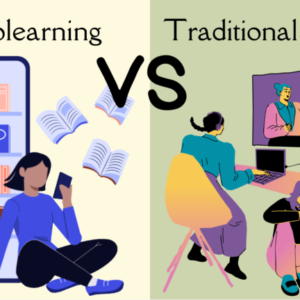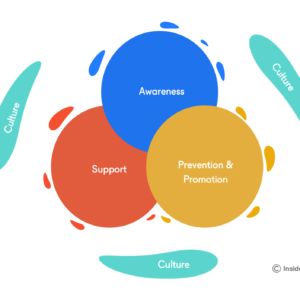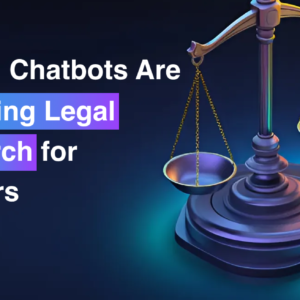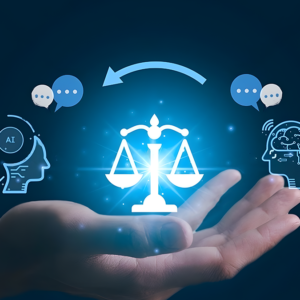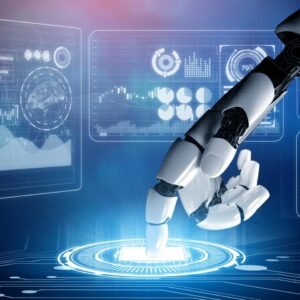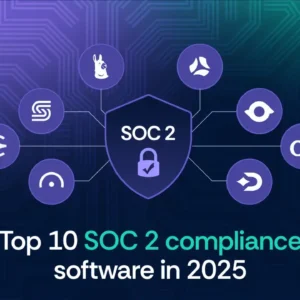Artificial Intelligence in Hiring is revolutionizing the way companies find and recruit top talent. With AI in Recruitment, the hiring process is becoming more efficient and effective. Companies are leveraging AI to streamline their recruitment processes, making it easier to find the best candidates for their job openings.
The use of Artificial Intelligence in Hiring has become a crucial aspect of talent acquisition. AI in Recruitment enables companies to automate tasks such as screening resumes and scheduling interviews, freeing up time for more strategic and creative work. This shift towards automation is changing the hiring process in significant ways, and it’s essential to understand the role of AI in Recruitment.
Introduction to AI in Recruitment
As technology continues to advance, the use of AI in Recruitment will only continue to grow. Companies that adopt AI in Recruitment will be better equipped to find and hire the best candidates, giving them a competitive edge in the market. With AI in Recruitment, companies can improve the hiring process, reduce costs, and increase efficiency.
Key Takeaways
- AI in Recruitment is changing the way companies hire and recruit top talent.
- Artificial Intelligence in Hiring automates tasks such as screening resumes and scheduling interviews.
- AI in Recruitment enables companies to find the best candidates for their job openings.
- The use of AI in Recruitment is becoming a crucial aspect of talent acquisition.
- Companies that adopt AI in Recruitment will have a competitive edge in the market.
- AI in Recruitment can improve the hiring process, reduce costs, and increase efficiency.
Understanding AI and Its Importance in Recruitment
Artificial intelligence (AI) is revolutionizing the recruitment process, making it more efficient and effective. With the help of AI, recruiters can now automate repetitive tasks, focus on high-value activities, and make data-driven decisions. Automated Recruiting is becoming increasingly popular, as it enables companies to streamline their hiring processes and reduce costs.
The use of Machine Learning in Talent Acquisition has also become a key aspect of AI in recruitment, enabling companies to analyze large amounts of data and identify top talent. This technology helps recruiters to match candidates with the right job openings, based on their skills, experience, and other factors. Some of the benefits of using AI in hiring include:
- Increased efficiency in the recruitment process
- Reduced bias in candidate selection
- Improved candidate experience
By leveraging AI and machine learning, companies can gain a competitive edge in the job market and attract the best talent. As the recruitment landscape continues to evolve, it’s essential for companies to stay ahead of the curve and adopt innovative technologies to improve their hiring processes.
How AI is Transforming Talent Acquisition
The recruitment landscape is undergoing a significant transformation, driven by the integration of AI-driven technologies. An AI-driven Recruitment Process is revolutionizing the way companies attract, select, and hire talent. By automating routine tasks, Recruitment Automation is enabling recruiters to focus on high-value activities, such as building relationships with candidates and making strategic hiring decisions.
At the heart of this transformation is the ability of AI to analyze vast amounts of data, identify patterns, and make predictions. This enables companies to streamline their application process, reducing the time and effort required to review resumes and cover letters. AI-powered tools can also help enhance candidate screening by analyzing candidate data and identifying top talent.
Some of the key benefits of AI in recruitment include:
- Improved efficiency and productivity
- Enhanced candidate experience
- Better quality hires
- Data-driven decision making
As companies continue to adopt AI-driven Recruitment Process and Recruitment Automation, we can expect to see significant improvements in the way talent is acquired and managed. By leveraging the power of AI, companies can gain a competitive edge in the market, drive business growth, and stay ahead of the curve in the ever-evolving recruitment landscape.
The Impact of AI on Hiring Decisions
As companies continue to adopt AI for HR, they are experiencing a significant shift in the way hiring decisions are made. With the help of Smart Recruitment Solutions, businesses can now reduce bias in the hiring process and make more informed decisions. AI algorithms analyze candidate data and identify top talent based on objective criteria, such as skills and experience.
This approach has led to a more efficient and effective hiring process. By leveraging AI for HR, companies can streamline their recruitment efforts and focus on finding the best candidates for the job. Some of the key benefits of using AI in hiring decisions include:
- Reduced bias in recruitment
- Improved predictive hiring analytics
- Enhanced candidate experience
By adopting AI-powered Smart Recruitment Solutions, companies can gain a competitive edge in the job market and attract top talent. As the use of AI in hiring decisions continues to grow, it’s essential for businesses to stay ahead of the curve and leverage these innovative solutions to drive success.
Popular AI Tools Used in Recruitment
As AI in Recruitment continues to evolve, various tools and technologies are being developed to streamline the hiring process. With the help of Artificial Intelligence in Hiring, companies can now automate tasks, improve candidate engagement, and make more informed decisions. Some of the most popular AI tools used in recruitment include:
These tools are designed to simplify the recruitment process, reduce costs, and enhance the overall candidate experience. By leveraging AI in Recruitment, companies can gain a competitive edge in the job market and attract top talent.
- Applicant tracking systems to manage job postings and candidate applications
- Chatbots for candidate engagement and initial screening
- AI-powered assessment tools to evaluate candidate skills and fit
By utilizing these Artificial Intelligence in Hiring tools, companies can create a more efficient and effective recruitment process. This not only benefits the organization but also provides a better experience for job seekers. As the use of AI in Recruitment continues to grow, it’s essential for companies to stay up-to-date with the latest trends and technologies to remain competitive in the job market.
The Role of Data in AI Recruitment Techniques
With the increasing use of Automated Recruiting, companies are now able to analyze large amounts of data to identify top talent and make more informed hiring decisions. This is made possible through Machine Learning in Talent Acquisition, which enables recruiters to sift through vast amounts of data and pinpoint the most suitable candidates. By leveraging data in this way, businesses can streamline their hiring processes and improve overall efficiency.
The use of data in recruitment also raises important questions about data privacy and ethics. As companies collect and analyze vast amounts of candidate data, it is essential to ensure that this information is handled responsibly and ethically. This includes implementing robust data protection measures and being transparent about how candidate data is used. Some key considerations include:
- Ensuring that candidate data is stored securely and in compliance with relevant regulations
- Being transparent about how candidate data is used and shared
- Providing candidates with control over their own data and preferences
By prioritizing data privacy and ethics, companies can build trust with candidates and maintain a positive reputation. As the use of AI in recruitment continues to evolve, it is essential to strike a balance between leveraging data to improve hiring outcomes and protecting candidate privacy. By doing so, businesses can harness the power of Automated Recruiting and Machine Learning in Talent Acquisition while maintaining ethical standards.
Challenges of Implementing AI in Recruitment
As companies embark on an AI-driven recruitment process, they may encounter several challenges that can hinder the successful implementation of recruitment automation. One of the primary concerns is the potential for AI systems to perpetuate existing biases in the hiring process, leading to unfair treatment of certain candidate groups.
Another challenge is the need for significant upfront investment in AI technology and training, which can be a barrier for smaller companies or those with limited budgets. Furthermore, the integration of AI systems with existing recruitment processes can be complex and time-consuming, requiring significant resources and expertise.
Some of the key challenges to consider when implementing AI in recruitment include:
- Ensuring the accuracy and fairness of AI-driven decision-making
- Addressing concerns around data privacy and security
- Providing transparency and explainability in AI-driven recruitment processes
- Developing strategies to overcome resistance to change from employees and stakeholders
By understanding these challenges and developing strategies to overcome them, companies can ensure a successful AI-driven recruitment process and reap the benefits of recruitment automation, including improved efficiency, reduced costs, and enhanced candidate experiences.
The Future of AI in Hiring Processes
As AI technology continues to evolve, it’s likely to have a significant impact on the recruitment landscape. With the help of AI for HR, companies can streamline their hiring processes, making them more efficient and effective. Smart Recruitment Solutions are being developed to help organizations find the best candidates for their open positions.
The use of AI in recruitment is expected to increase in the coming years, with many companies already implementing AI-powered tools to enhance their hiring processes. Some of the trends to watch in recruitment technology include the use of machine learning algorithms to analyze candidate data and predict the best fit for a particular role. Additionally, AI-powered chatbots are being used to engage with candidates and provide them with a more personalized experience.
Some predictions for AI evolution in recruitment include:
- Increased use of AI-powered assessment tools to evaluate candidate skills and abilities
- More emphasis on using AI to reduce bias in the hiring process
- Greater use of data analytics to inform hiring decisions and improve recruitment outcomes
Overall, the future of AI in hiring processes looks promising, with many opportunities for companies to improve their recruitment outcomes and find the best candidates for their open positions. By leveraging AI for HR and Smart Recruitment Solutions, organizations can stay ahead of the curve and achieve their hiring goals.
Case Studies: AI Success Stories
Companies like IBM and Accenture are thriving with AI in recruitment, leveraging Artificial Intelligence in Hiring to streamline their processes and improve candidate engagement. By implementing AI-powered tools, these companies have been able to reduce time-to-hire, increase the quality of candidates, and enhance the overall recruitment experience.
The use of AI in recruitment has also enabled companies to make more informed hiring decisions, reducing bias and improving predictive analytics. For example, a study by Glassdoor found that companies using AI in recruitment saw a 20% increase in qualified candidates and a 15% reduction in time-to-hire.
Lessons Learned from AI Implementations
Some key lessons learned from companies that have successfully implemented AI in recruitment include:
- Start small and scale up: Begin with a pilot project to test the effectiveness of AI-powered tools and then expand to larger recruitment efforts.
- Define clear goals and metrics: Establish specific objectives and metrics to measure the success of AI in recruitment, such as time-to-hire, candidate quality, and cost savings.
- Ensure data quality: High-quality data is essential for AI-powered tools to be effective, so it’s crucial to ensure that recruitment data is accurate, complete, and up-to-date.
By following these lessons and leveraging AI in recruitment, companies can improve their hiring processes, reduce costs, and enhance the candidate experience, ultimately driving business success through effective use of AI in Recruitment and Artificial Intelligence in Hiring.
Best Practices for Integrating AI in Recruitment
To get the most out of Automated Recruiting, it’s essential to tailor AI solutions to your specific needs. This involves understanding your recruitment goals, identifying areas where Machine Learning in Talent Acquisition can add value, and implementing AI tools that align with your objectives. By doing so, you can streamline your hiring process, improve candidate quality, and reduce time-to-hire.
Continuous learning and adaptation are crucial when integrating AI in recruitment. As AI technology evolves, it’s vital to stay up-to-date with the latest trends and developments. This can be achieved by attending industry conferences, participating in webinars, and engaging with AI experts. By embracing a culture of continuous learning, you can ensure that your AI-powered recruitment strategies remain effective and efficient.
Some key considerations for integrating AI in recruitment include:
- Defining clear recruitment goals and objectives
- Assessing the effectiveness of AI tools and technologies
- Ensuring data quality and integrity
- Addressing potential biases in AI decision-making
By following these best practices and leveraging the power of Automated Recruiting and Machine Learning in Talent Acquisition, you can transform your recruitment process, drive business growth, and stay ahead of the competition.
Ensuring Compliance with AI in Recruitment
As companies adopt AI-driven recruitment processes, it’s essential to ensure compliance with relevant laws and regulations. The use of Recruitment Automation tools can streamline hiring, but it also raises concerns about data privacy and employment discrimination. To navigate these complexities, companies must prioritize ethical considerations in AI adoption.
The AI-driven recruitment process involves collecting and analyzing large amounts of candidate data, which must be handled in accordance with data protection laws. Companies must also ensure that their Recruitment Automation systems do not perpetuate biases or discriminate against certain groups of candidates. By prioritizing transparency and fairness in their AI-driven recruitment processes, companies can minimize the risk of non-compliance and reputational damage.
Some key considerations for ensuring compliance with AI in recruitment include:
- Conducting regular audits to ensure that AI systems are free from bias
- Implementing robust data protection measures to safeguard candidate data
- Providing clear explanations of how AI-driven recruitment decisions are made
By taking a proactive approach to ensuring compliance with AI in recruitment, companies can harness the benefits of Recruitment Automation while maintaining a fair and transparent hiring process. This not only helps to mitigate risks but also enhances the overall candidate experience and promotes a positive employer brand.
Conclusion: Embracing AI for Better Recruitment Outcomes
As we’ve explored, the integration of AI in recruitment is transforming the hiring landscape. By leveraging AI-powered tools, companies can streamline their processes, enhance candidate engagement, and make more informed hiring decisions. The future of recruitment lies in the seamless adoption ofsmart recruitment solutionsthat harness the power of artificial intelligence.
Why Companies Should Adopt AI Tools
The advantages of incorporatingAI for HRare clear. AI can help reduce biases, improve predictive analytics, and provide a more personalized candidate experience. By embracing these innovative technologies, organizations can stay ahead of the curve and attract top talent more efficiently. As the competition for skilled professionals intensifies, AI-driven recruitment strategies will become increasingly crucial for success.
Final Thoughts on the Future of Recruitment
The evolution of AI in recruitment is only just beginning. As the technology continues to advance, we can expect to see even more remarkable advancements in the way companies identify, engage, and evaluate candidates. By staying attuned to these trends and proactively adopting AI-powered solutions, organizations can position themselves for long-term talent acquisition success. The future of recruitment is undoubtedly intertwined with the transformative power of artificial intelligence.
